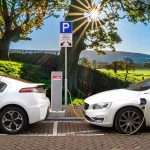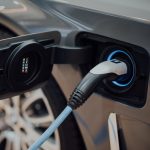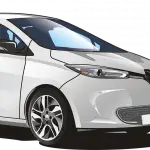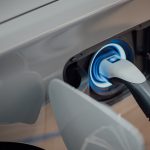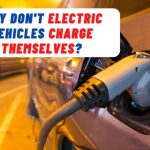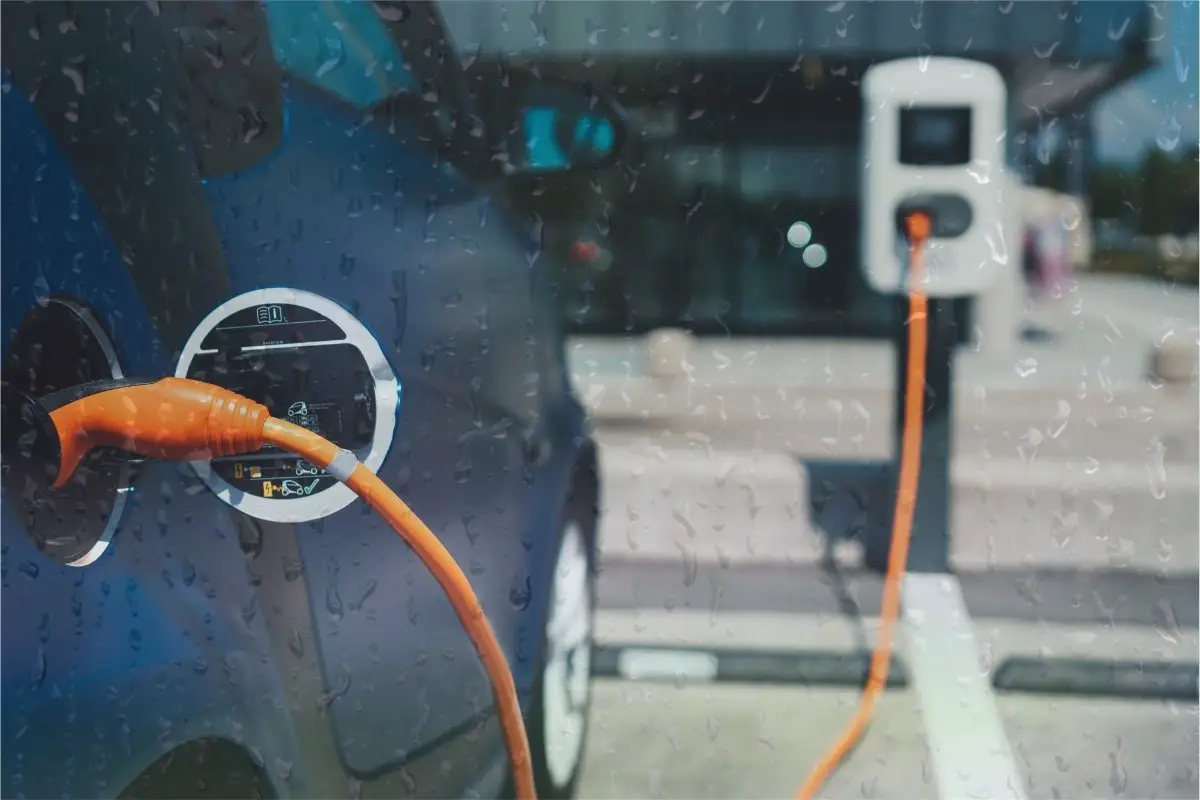Last Updated on December 5, 2022 by

An electric vehicle is a vehicle that uses electric motors for propulsion, instead of an internal combustion engine.
These electric vehicles are seen as a possible replacement for the current automobiles. They may not be high-performance cars, but they give good mileage in cities and on short-distance travels.
Though their initial purchasing costs are very high, they come with a warranty of around 7 to 8 years.
But there are some questions that still surround these electric vehicles. One of the most interesting questions has been in the context of the charging capacity of electric vehicles.
The question ‘why can’t electric vehicles self-charge’ has become a part of the mainstream questions on electric cars and other vehicles.
This article explains why electric vehicles are not capable of self-charging. Do read the frequently asked questions at the end of this article for more clarity on the functionality of electric vehicles.
Why can’t electric cars charge themselves with an alternator?
This question may not be very difficult to answer owing to the basic science behind electric vehicles.
Electric vehicles cannot charge themselves with an alternator because an alternator needs a certain amount of mechanical energy to smoothly perform its function. In this case, the energy is obtained from the capacity of the engine to burn fossil fuel.
However, as we know that electric cars do not have any engines that could burn fuel, therefore, there is no point in installing an alternator in an electric vehicle. It would simply be a waste of resources.
Why cant electric cars charge themselves?
Electric cars are incapable of charging themselves because some of their energy is lost in the process.
In such cases, energy conversions are not hundred percent efficient because some energy is lost during the process of conversion in the form of heat.
However, electric vehicles do recycle some of the energy through their regenerative braking system. This is the reason why electric cars cannot charge themselves.
Electric car that charges as you drive
Interestingly, there are some electric cars that get charged as you drive. This works on the principle of ‘dynamic induction’.
Dynamic induction charging is surely a near-future concept that is capable of supplying electricity to the vehicle while it is being driven.
Thus, the electric cars in this case would charge themselves while driving. This directly cuts down the need or the requirement for high-capacity batteries or numerous charging stations.

Can electric cars Self charge while driving?
Yes, some electric cars can self-charge while driving. This concept is based on dynamic induction charging.
Induction charging means the transfer of energy from one electric coil or cable through an electromagnetic field. So, when the cars are being driven, they are capable of self-charging themselves.
However, there is one condition attached to this. The electric car should have a ‘receptor coil’ which must be installed horizontally to the chassis.
This is done in order to receive energy sent by the ‘emitter coil’ on the ground. To know more about this, watch the video below.
Why don’t electric cars have gas generators?
Electric car enthusiasts would often ask why these cars do not have any gas generators. In very simple terms, electric cars do not operate on generators.
If they had a generator, it would have been much easier to charge the vehicle. The generators are not efficient in electric cars and also there are some electrical losses too.
Is self-charging possible?
In the case of electric cars, self-charging is not possible. Electric cars do not have the capacity to self-charge themselves because some of their energy is lost in the process.
However, with new advancements in technology, some electric cars can now self-charge themselves while driving.
They charge themselves through the concept of dynamic induction charging, which allows the car to charge itself when it is being driven.
Can an electric car charge itself while driving?
While many electric cars cannot self-charge themselves, some electric cars can self-charge while driving.
This concept is based on dynamic induction charging, which denotes the transfer of energy from one electric coil or cable through an electromagnetic field.
In this case, when a driver is driving a hybrid electric car, the car is capable of charging itself when in motion.
However, a precondition to this is that the electric car should have a ‘receptor coil’ which must be installed horizontally to the chassis.
With increased advancements in technology and science, more electric cars will be able to self-charge themselves while driving.

Can a Tesla charge itself?
Electric car enthusiasts have shown much interest in the cars manufactured by Tesla. Tesla is leading some of the best advancements in electric cars based on futuristic concepts.
There are many questions relating to the self-charging capacity of Tesla cars. So here is the answer! Tesla charges itself when it slows down.
The car’s electric motor is connected to its transmission system. This, in turn, produces electricity which further recharges the battery.
However, a key thing to note is that this charge is not sufficient to charge the vehicle completely. Therefore, one would still need an electric vehicle charging station to charge their cars.
Can you charge an electric car with a generator while driving?
This can be tricky, but yes, one can charge their electric car as long as the power supply is well regulated, along with good grounding.
Why do Teslas not charge themselves?
In the emerging world of electric cars, Tesla is a grand leader. Tesla charges itself when it slows down.
But, this charge is not sufficient to charge the vehicle completely, which would result in shorter journeys. Therefore, one would still need an electric vehicle charging station to charge their cars.
Why can’t car wheels generate electricity?
This can be an interesting question as to why can’t car wheels generate electricity. Clearly, this is because there is no free energy. If the rotation of the axle is used to spin an electromagnet, it must generate drag.
This will take a lot of energy, requiring gasoline in the engine, to spin the magnet on the axle. This could, in turn, generate power. But owing to no energy, car wheels are incapable of generating electricity.
Self regenerating electric car
Self-charging cars are often also called self-charging hybrid cars. Such cars powers themselves as you drive them. Such electric cars power their own batteries by using regenerative braking.
Regenerative braking is a force that is created when your car slows down. An example of this is the Tesla cars that charge themselves while slowing down.
Clearly, this saves a lot of time to charge the car at home or at the electric vehicle charging stations. This also secures the driver from the anxiety of running out of charge while driving.
Self-charging electric cars 2022
Electric vehicles that are capable of self-charging themselves are also called hybrid electric vehicles. Here is a list of some self-charging cars of 2022.
- Toyota Camry Hybrid
- Lexus 300h Exquisite Hybrid
- Maruti Suzuki Baleno Hybrid
- MG Hector Hybrid
- Volvo XC90 Recharge

FAQ relating to Why can’t electric vehicles self charge?
Electric vehicles are becoming everyone’s favourite in present times. Not only do their maintenance costs are low, but they are doing some good to the environment too.
These electric vehicles are a new trend in technology and a lot of questions revolve around their functioning. However, a very relevant and one of the most trending questions related to electric vehicles is why these vehicles are incapable of charging themselves.
It is true that electric vehicles have been around for a long time, but there have been significant emerging interests in electric vehicles owing to greater environmental conscience.
Read below some of the frequently asked questions on electric vehicles.
Do electric cars charge while going downhill?
Yes, electric cars get charged and regenerate electricity when going downhill. This is also true when the electric car is using brakes.
Do electric cars use braking to charge?
Yes, electric cars can use their braking system to charge themselves. This is called regenerative braking, which is a mechanism found on many full-electric or hybrid electric vehicles.
How fast can you drive an electric car?
The average speed of an electric car is around 110 mph to 150 mph. However, for electric cars, speed and performance do not really matter.
Electric cars are purchased not for their performance but for other individual reasons like cost of maintenance, cost-effective, and environmentally efficient, among other reasons.
How many years does a gas powered car last?
There is no one particular answer to this question, owing to the diversity of brands, car models, etc. However, a gas-powered car lasts for almost around 10 to 15 years. This would mean that it would run for at least 150,000 miles on average.
Key Takeaways
- Electric cars are incapable of charging themselves because some of their energy is lost in the process.
- Some electric cars can self-charge while driving, based on the concept of dynamic induction charging.
- Tesla charges itself when it slows down.
- Electric vehicles do recycle some of the energy through their regenerative braking system.
- Why Electric Vehicles Are Not Popular - January 29, 2023
- How Long Do Tesla Batteries Last Per Day? Battery Facts - January 25, 2023
- Do Electric Vehicles Have Air Conditioning? - December 21, 2022

